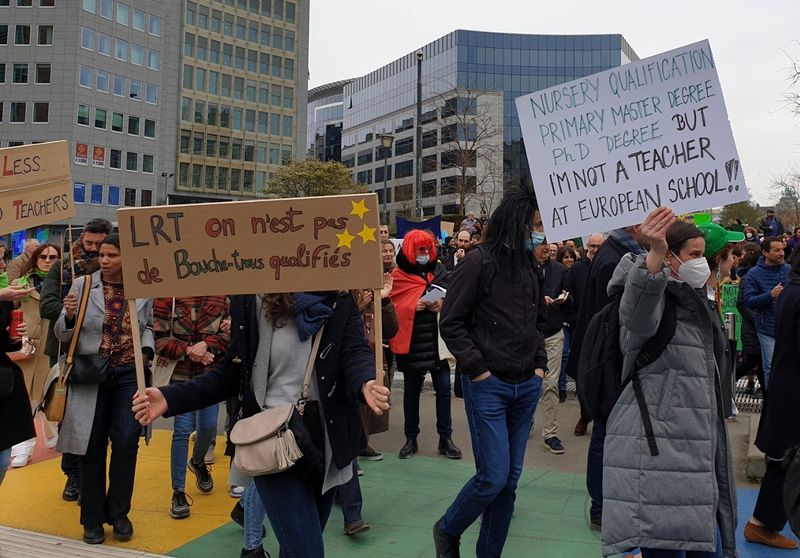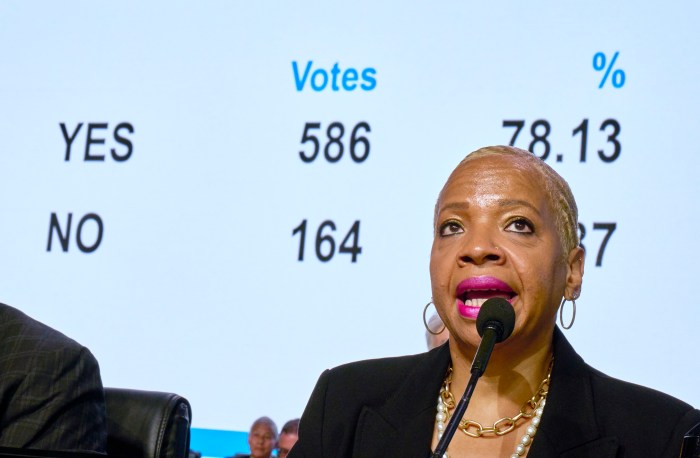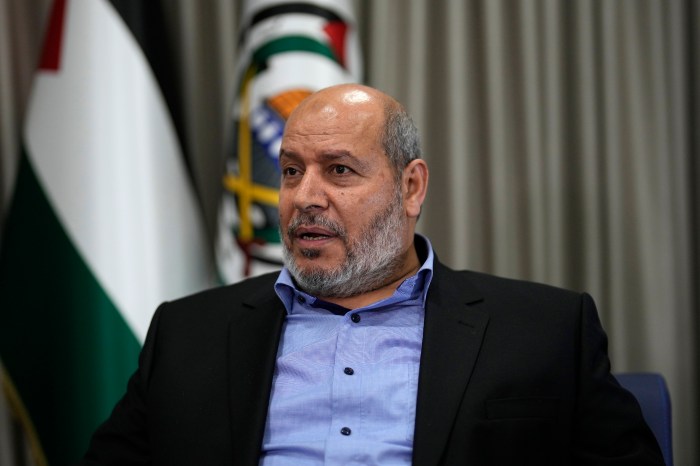BRUSSELS (Reuters) – Hundreds of teachers at EU schools whose ex-pupils include British Prime Minister Boris Johnson and European Commission head Ursula von der Leyen marched on Wednesday to demand better job security and contracts protected under EU employment laws.
Up to 300 teachers and other marchers, many holding banners, gathered in the EU district of Brussels on Wednesday afternoon to protest at the terms under which locally recruited teachers are hired for the European Schools.
The 13 schools cater for around 28,000 children of staff at EU institutions and of diplomats. Five are in Belgium and the rest in Germany, Italy, Luxembourg, the Netherlands and Spain.
Their teaching staff are split into two categories, about half provided by EU member states and the rest – the segment protesting on Wednesday – hired locally and paid less.
“The locally recruited teachers are employed on a contract designed by the Commission which represents all European values and principles, but we are exempt from all those principles,” said philosophy teacher Matthew Pye.
“So all European employment law doesn’t apply to us. We’re in a separate legal bubble.”
The teachers’ group say that they risk having their own jobs advertised abroad, and that they can be removed or have their hours sharply cut if an EU member state hires a teacher to fill the same post.
They also say they are denied union membership.
The group said millions of people through the European Union had benefited from improvements to EU labour laws. “But there is one group of workers excluded from this process – and they work as teachers in the European Schools.”
The EU office responsible for European Schools did not immediately respond to Reuters request for comment.
(Reporting by Philip Blenkinsop; editing by John Stonestreet)



















